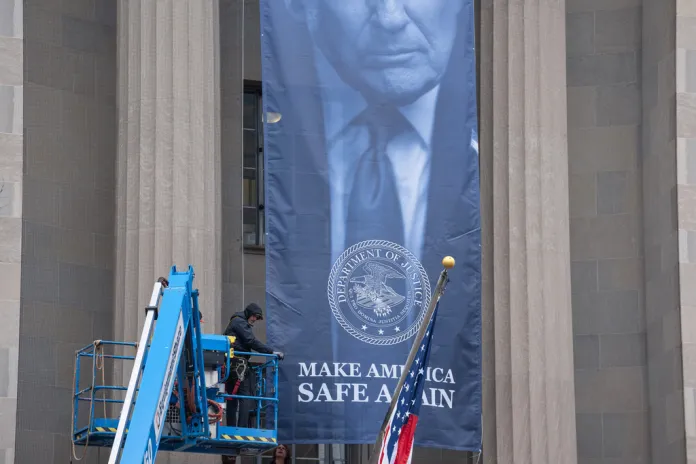SCOTUS Punts On Trump-Library Of Congress Dispute (For Now)
The U.S. supreme Court recently declined to instantly rule on a lower court’s injunction that sought to block President Trump from firing Shira Perlmutter, a top official who lead the U.S. Copyright Office within the Library of Congress until her removal in May. This decision was made in the case Blanche v. Perlmutter, where the Court deferred action pending decisions in related cases involving Trump’s firing of Democrat-appointed officials Rebecca Slaughter (Federal Trade Commission) and Lisa Cook (Federal Reserve Board).These cases raise constitutional questions about the statutory protections for certain public officials and whether courts can prevent their removal. Justice Clarence Thomas dissented, expressing support for temporarily pausing the injunction against Perlmutter’s firing.The outcome of these cases could impact the broader understanding of executive power and the independent agency structure established under longstanding precedents such as Humphrey’s Executor v. United States.
On Wednesday, the U.S. Supreme Court punted on deciding whether to uphold or reject a lower court order that attempted to prevent President Trump from firing a top official at the Library of Congress.
In its one-page order in Blanche v. Perlmutter, the high court deferred consideration of a request from the Trump administration to temporarily stay (“pause”) a September injunction issued by a three-judge panel on the D.C. Circuit Court of Appeals. That directive sought to block the administration from firing Shira Perlmutter, who led the U.S. Copyright Office in the Library of Congress until her termination in May.
As The Federalist previously reported, “Perlmutter’s dismissal came shortly after Trump removed Obama-appointed Carla Hayden as Librarian of Congress. Hayden has been replaced by Deputy Attorney General Todd Blanche, who is filling the position on an ‘acting’ basis.”
Associate Justice Clarence Thomas would have granted the administration’s request to temporarily pause the injunction.
According to the court’s order, consideration of the government’s application is deferred pending a decision from the justices in Trump v. Slaughter and Trump v. Cook. Those cases, which arose earlier this year, center around Trump’s firing of Rebecca Slaughter and Lisa Cook, Democrat-appointed members of the Federal Trade Commission (FTC) and Federal Reserve Board of Governors, respectively.
In the former case, a Biden-appointed district court judge issued an injunction preventing Slaughter’s dismissal. After failing to obtain a temporary stay on that injunction at the D.C. Circuit Court of Appeals, the administration appealed to SCOTUS, which temporarily granted the government’s application in September.
In approving the administration’s request, the high court additionally revealed that it would be taking up and hearing arguments in the case, which are currently slated for Dec. 8, 2025. In its order, the justices instructed the parties to address whether “the statutory removal protections for members of the Federal Trade Commission violate the separation of powers and, if so, whether[[Humphrey’s Executor v. United States]… should be overruled,” and if “a federal court may prevent a person’s removal from public office, either through relief at equity or at law.”
As The Federalist previously reported, Humphrey’s Executor is a 1935 Supreme Court decision that gave rise to Progressives’ “independent agencies” theory and effectively helped birth what has been since been referred to as the “administrative state” — a de facto fourth branch of government that’s been permitted to operate outside the normal confines of the Constitution for nearly a century.
In Cook’s case, SCOTUS declined to block a lower court injunction preventing her firing last month. Similar to Slaughter’s case, the justices revealed that they will be taking up and hearing arguments in the case, which are slated to occur in January 2026.
" Conservative News Daily does not always share or support the views and opinions expressed here; they are just those of the writer."




